Classical CDs Weekly: Eisler, Hindemith, Gabriel Prokofiev | reviews, news & interviews
Classical CDs Weekly: Eisler, Hindemith, Gabriel Prokofiev
Classical CDs Weekly: Eisler, Hindemith, Gabriel Prokofiev
East German film music, a 20th century response to Bach and a pair of contemporary concertos
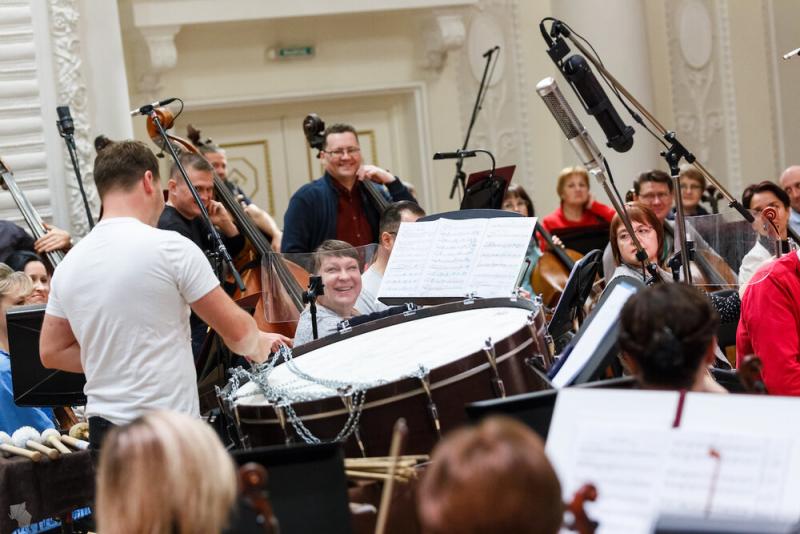
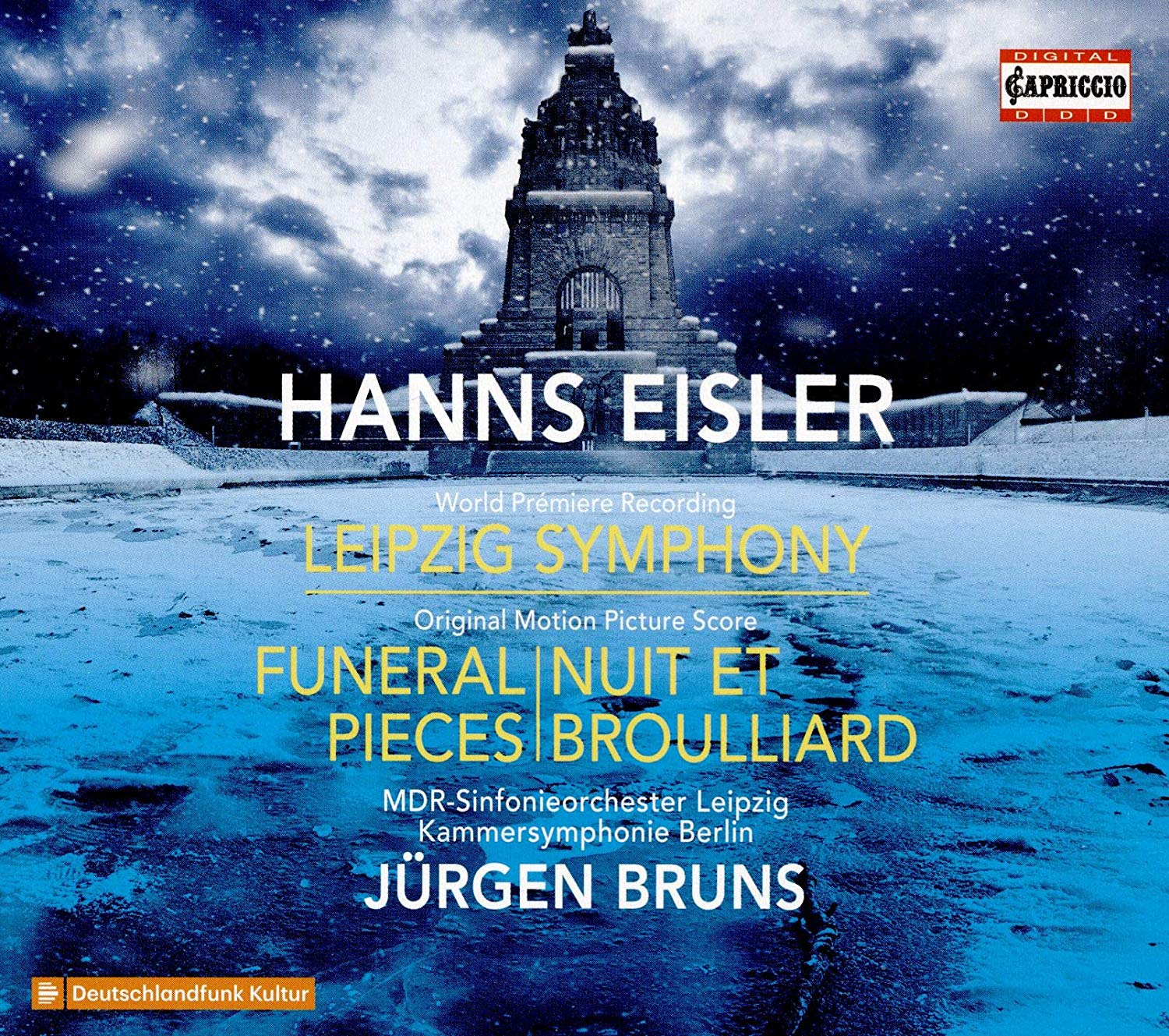 Eisler: Leipzig Symphony, Night and Fog, Sorrowful Pieces from Film Scores MDR-Sinfonieorchester Leipzig, Kammersymphonie Berlin/Jürgen Bruns (Capriccio)
Eisler: Leipzig Symphony, Night and Fog, Sorrowful Pieces from Film Scores MDR-Sinfonieorchester Leipzig, Kammersymphonie Berlin/Jürgen Bruns (Capriccio)
The Leipzig Gewandhausorchester commissioned a symphony from Hanns Eisler in 1959. Adept at recycling, his intention was to reuse and rearrange music from the film scores written during his last years in East Berlin. The symphony was never completed, until erstwhile pupil Tilo Medek obtained permission from Eisler’s widow in the late 1990s to investigate what the composer had left. Which wasn’t much, Medek having to work out which pieces were to be adapted from Eisler's sketchy notes. What we hear on this first recording is a 20-minute, four-movement suite. It's entertaining, and neatly assembled, but not a symphony. Much of the music is typical Eisler, though: spiky and witty, deftly blending disparate styles, the material for the two middle movements drawn from the score to Les Sorcières de Salem, a French/East German co-production starting Yves Montand and blessed with a screenplay by Sartre.
Far more substantial is the eclectic soundtrack composed for Alan Resnais’ concentration camp documentary Night and Fog, the transitions between tonal and atonal writing brilliantly managed. There's also a nine-movement suite, Sorrowful Pieces from Film Scores, assembled in 2015. The individual sections’ brevity works against them, only one lasting longer than two minutes. You're crying out for a bit of thematic development before the plug gets abruptly pulled. Still, there's some superb music here if you're an Eisler aficionado; newcomers are best advised to start with the great man's songs. Jürgen Bruns draws punchy playing from the two ensembles, with some full-blooded string playing.
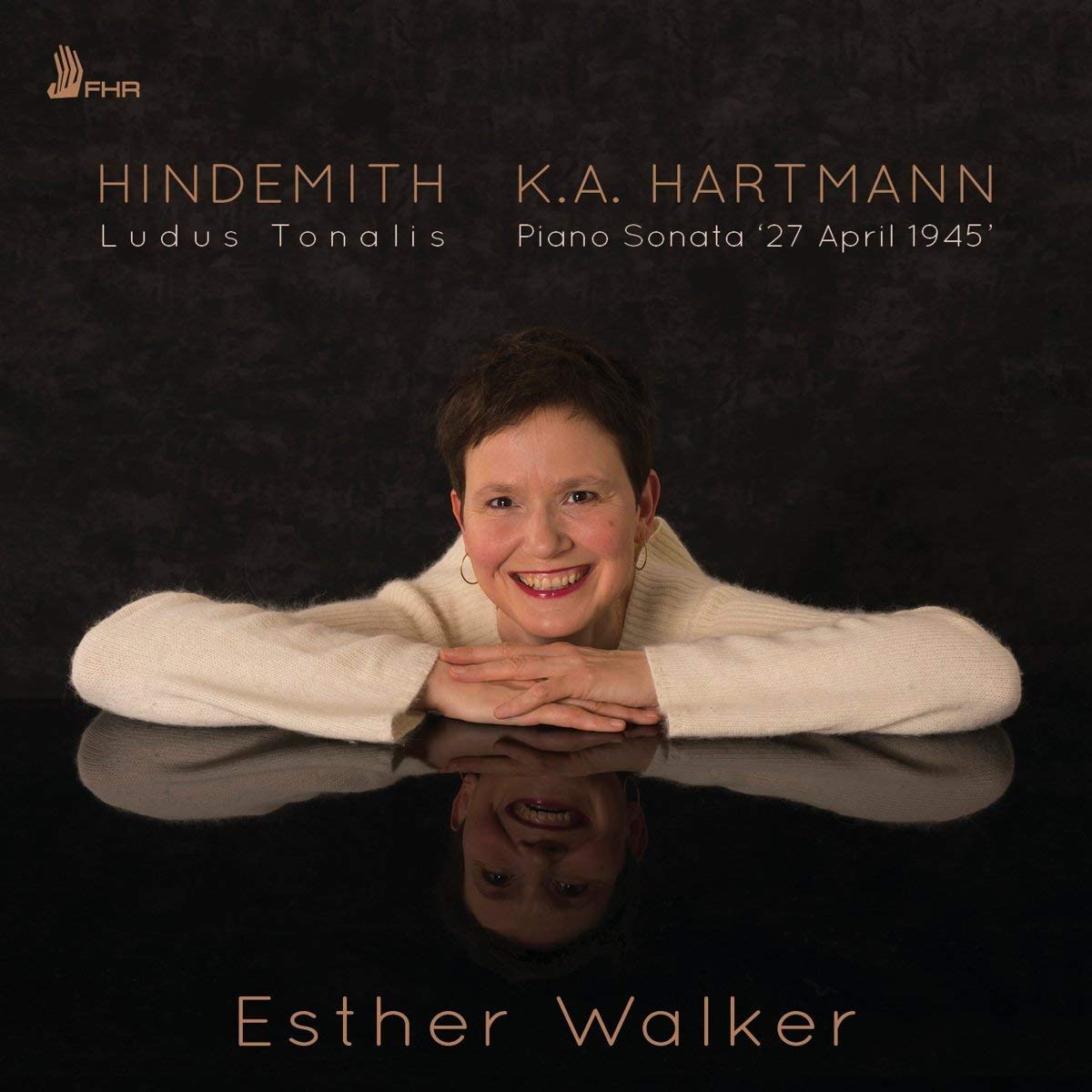 Hindemith: Ludus Tonalis; Hartmann: Piano Sonata '27 April 1945' Esther Walker (piano) (First Hand Records)
Hindemith: Ludus Tonalis; Hartmann: Piano Sonata '27 April 1945' Esther Walker (piano) (First Hand Records)
The best-known 20th century response to Bach’s Well-Tempered Clavier is the set of 24 preludes and fugues by Shostakovich. It's easy to overlook Hindemith's magnificent Ludus Tonalis, completed in just six weeks in 1942, while the composer was teaching at Yale. He was intensely proud of the work. Twelve fugues are separated by interludes, the 54-minute sequence topped and tailed by a Praeludium and Postludium. The language isn't tonal in any conventional sense, though each fugue is anchored around a note in the chromatic scale and most end with a consonant chord. Don't be alarmed: this is serious music, but always enjoyable, Hindemith's ability to spin technically perfect fugues from ungainly themes invoking more smiles than frowns. Some aspects are brain-boggling: the second fugue’s 5/8 time signature skips along, and it's worth having a look at the score to see how the third one reaches a halfway point before replaying itself backwards. Even the Postludium is the Praeludium played in reverse. There's plenty of variety in the interludes too, nods to Bach and Brahms as frequent as the marches and snatches of jazz.
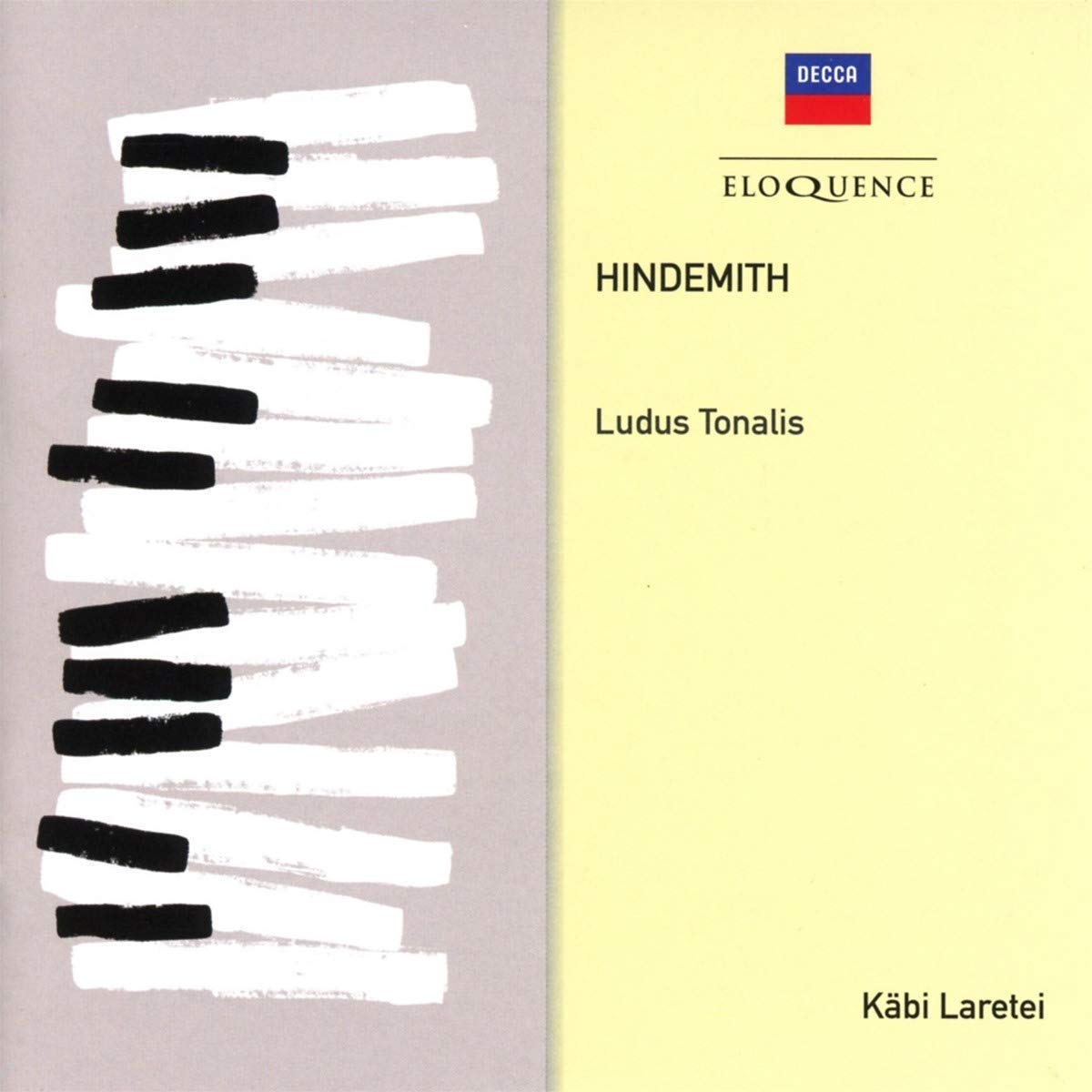 Two recordings of this rare masterpiece have recently surfaced. Käbi Laretei’s was recorded in 1965 and has just been reissued by Decca Eloquence. It still sounds authoritative, Laretei having been coached by Hindemith in the early 1960s. Her energy and élan are intoxicating. She was a polymath, a refugee from Soviet-occupied Estonia who found safety in Sweden, becoming Ingmar Bergman’s fourth wife and acting in several of his films. Later she achieved fame as an author, dying in 2014. The newer disc, from Swiss pianist Esther Walker is blessed with warmer sound and comes coupled with Hartmann's imposing Piano Sonata '27 April 1945’, a sombre, eloquent wartime work inspired by the sight of “an endless stream of Dachau prisoners… unending was the misery, unending was the sorrow”. Each performance of Ludus Tonalis is a keeper. Do yourself a favour and purchase both CDs.
Two recordings of this rare masterpiece have recently surfaced. Käbi Laretei’s was recorded in 1965 and has just been reissued by Decca Eloquence. It still sounds authoritative, Laretei having been coached by Hindemith in the early 1960s. Her energy and élan are intoxicating. She was a polymath, a refugee from Soviet-occupied Estonia who found safety in Sweden, becoming Ingmar Bergman’s fourth wife and acting in several of his films. Later she achieved fame as an author, dying in 2014. The newer disc, from Swiss pianist Esther Walker is blessed with warmer sound and comes coupled with Hartmann's imposing Piano Sonata '27 April 1945’, a sombre, eloquent wartime work inspired by the sight of “an endless stream of Dachau prisoners… unending was the misery, unending was the sorrow”. Each performance of Ludus Tonalis is a keeper. Do yourself a favour and purchase both CDs.
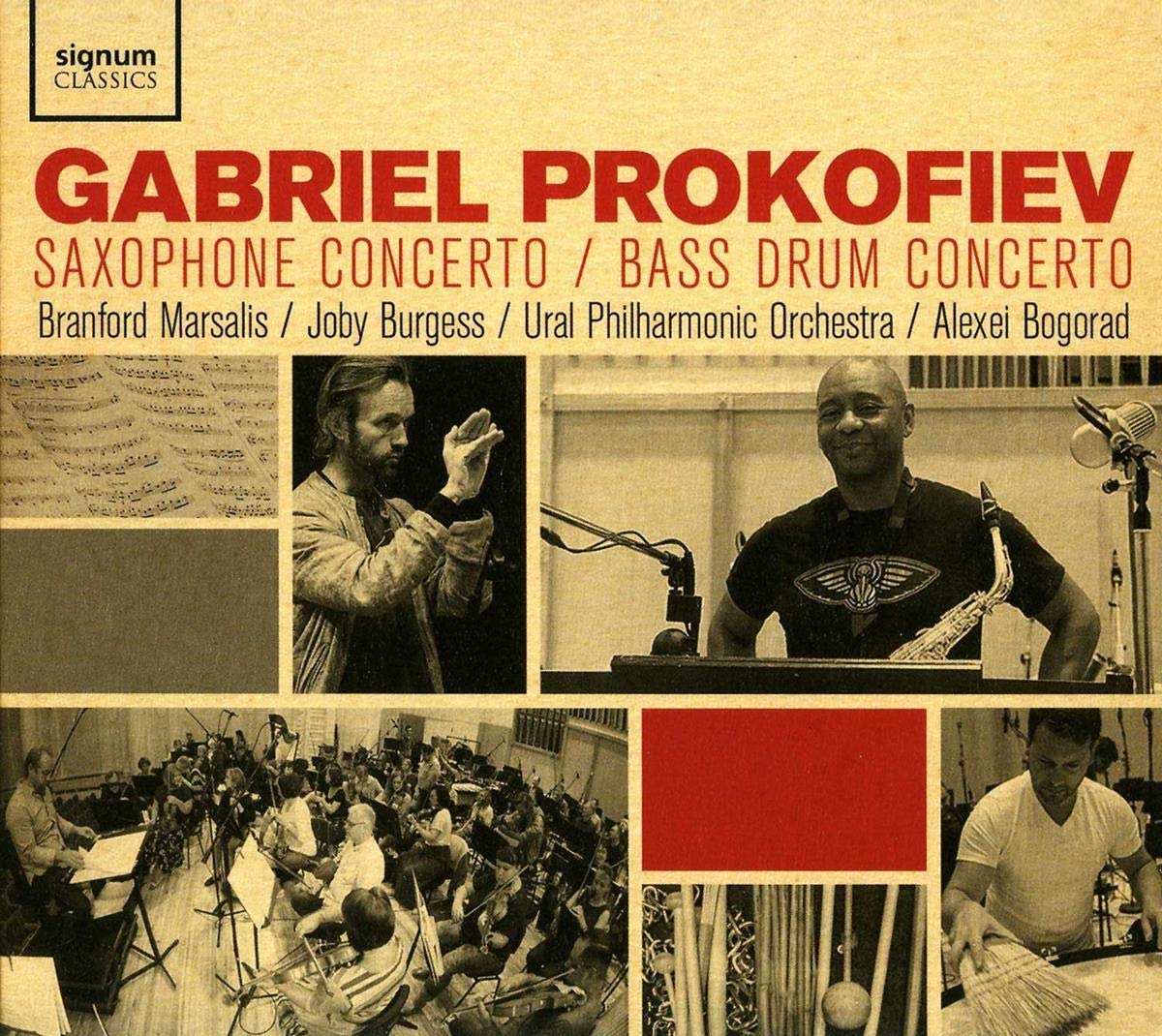 Gabriel Prokofiev: Saxophone Concerto, Bass Drum Concerto Branford Marsalis (saxophone), Joby Burgess (bass drum), Ural Philharmonic Orchestra/Alexei Bogorad (Signum)
Gabriel Prokofiev: Saxophone Concerto, Bass Drum Concerto Branford Marsalis (saxophone), Joby Burgess (bass drum), Ural Philharmonic Orchestra/Alexei Bogorad (Signum)
Writing a virtuoso concerto for an unpitched instrument is a tall order, a challenge risen to magnificently by Gabriel Prokofiev in his Bass Drum Concerto. He points out that the bass drum is now a ubiquitous instrument, heard pounding out of car stereos and shop doorways. Soloist Joby Burgess draws an unfeasibly wide range of sounds from his drum, tapping and rubbing the skin and at one point placing chains on it. There's a fantastic moment at the close of the first section when the gut string inside the body is bowed, the resultant rumble like a small earthquake. As contemporary concertos go, it's brilliant. Prokofiev's occasionally dark scoring never obscures the soloist and several moments make you catch your breath, as with the glacial string writing which interrupts the slow movement’s momentum. Alexei Bogorad’s Ural Philharmonic offer colourful, punchy accompaniment.
The Saxophone Concerto is played here by dedicatee Branford Marsalis. Eschewing too many allusions to jazz, Prokofiev set out to create a "classical" concerto. It's another instantly appealing work, rich in melody and incident. There's a marvellous elegiac slow movement, and a finale pitting a very vocal soloist against an angular orchestral backdrop. A fantastic disc – performances and recording are magnificent, and Signum’s packaging and design are appealing.
Explore topics
Share this article
The future of Arts Journalism
You can stop theartsdesk.com closing!
We urgently need financing to survive. Our fundraising drive has thus far raised £49,000 but we need to reach £100,000 or we will be forced to close. Please contribute here: https://gofund.me/c3f6033d
And if you can forward this information to anyone who might assist, we’d be grateful.

Subscribe to theartsdesk.com
Thank you for continuing to read our work on theartsdesk.com. For unlimited access to every article in its entirety, including our archive of more than 15,000 pieces, we're asking for £5 per month or £40 per year. We feel it's a very good deal, and hope you do too.
To take a subscription now simply click here.
And if you're looking for that extra gift for a friend or family member, why not treat them to a theartsdesk.com gift subscription?
more Classical music
 Bizet in 150th anniversary year: rich and rare French offerings from Palazzetto Bru Zane
Specialists in French romantic music unveil a treasure trove both live and on disc
Bizet in 150th anniversary year: rich and rare French offerings from Palazzetto Bru Zane
Specialists in French romantic music unveil a treasure trove both live and on disc
 Scottish Chamber Orchestra, Ibragimova, Queen’s Hall, Edinburgh review - rarities, novelties and drumrolls
A pity the SCO didn't pick a better showcase for a shining guest artist
Scottish Chamber Orchestra, Ibragimova, Queen’s Hall, Edinburgh review - rarities, novelties and drumrolls
A pity the SCO didn't pick a better showcase for a shining guest artist
 Kilsby, Parkes, Sinfonia of London, Wilson, Barbican review - string things zing and sing in expert hands
British masterpieces for strings plus other-worldly tenor and horn - and a muscular rarity
Kilsby, Parkes, Sinfonia of London, Wilson, Barbican review - string things zing and sing in expert hands
British masterpieces for strings plus other-worldly tenor and horn - and a muscular rarity
 From Historical to Hip-Hop, Classically Black Music Festival, Kings Place review - a cluster of impressive stars for the future
From quasi-Mozartian elegance to the gritty humour of a kitchen inspection
From Historical to Hip-Hop, Classically Black Music Festival, Kings Place review - a cluster of impressive stars for the future
From quasi-Mozartian elegance to the gritty humour of a kitchen inspection
 Shibe, LSO, Adès, Barbican review - gaudy and glorious new music alongside serene Sibelius
Adès’s passion makes persuasive case for the music he loves, both new and old
Shibe, LSO, Adès, Barbican review - gaudy and glorious new music alongside serene Sibelius
Adès’s passion makes persuasive case for the music he loves, both new and old
 Anja Mittermüller, Richard Fu, Wigmore Hall review - a glorious hall debut
The Austrian mezzo shines - at the age of 22
Anja Mittermüller, Richard Fu, Wigmore Hall review - a glorious hall debut
The Austrian mezzo shines - at the age of 22
 First Person: clarinettist Oliver Pashley on the new horizons of The Hermes Experiment's latest album
Compositions by members of this unusual quartet feature for the first time
First Person: clarinettist Oliver Pashley on the new horizons of The Hermes Experiment's latest album
Compositions by members of this unusual quartet feature for the first time
 Gesualdo Passione, Les Arts Florissants, Amala Dior Company, Barbican review - inspired collaboration excavates the music's humanity
At times it was like watching an anarchic religious procession
Gesualdo Passione, Les Arts Florissants, Amala Dior Company, Barbican review - inspired collaboration excavates the music's humanity
At times it was like watching an anarchic religious procession
 Classical CDs: Camels, concrete and cabaret
An influential American composer's 90th birthday box, plus British piano concertos and a father-and-son duo
Classical CDs: Camels, concrete and cabaret
An influential American composer's 90th birthday box, plus British piano concertos and a father-and-son duo
 Cockerham, Manchester Camerata, Sheen, Martin Harris Centre, Manchester review - re-enacting the dawn of modernism
Two UK premieres added to three miniatures from a seminal event of January 1914
Cockerham, Manchester Camerata, Sheen, Martin Harris Centre, Manchester review - re-enacting the dawn of modernism
Two UK premieres added to three miniatures from a seminal event of January 1914
 Kempf, Brno Philharmonic, Davies, Bridgewater Hall, Manchester review - European tradition meets American jazz
Bouncing Czechs enjoy their Gershwin and Brubeck alongside Janáček and Dvořák
Kempf, Brno Philharmonic, Davies, Bridgewater Hall, Manchester review - European tradition meets American jazz
Bouncing Czechs enjoy their Gershwin and Brubeck alongside Janáček and Dvořák
 Solomon, OAE, Butt, QEH review - daft Biblical whitewashing with great choruses
Even a top soprano and mezzo can’t make this Handel paean wholly convincing
Solomon, OAE, Butt, QEH review - daft Biblical whitewashing with great choruses
Even a top soprano and mezzo can’t make this Handel paean wholly convincing

Add comment